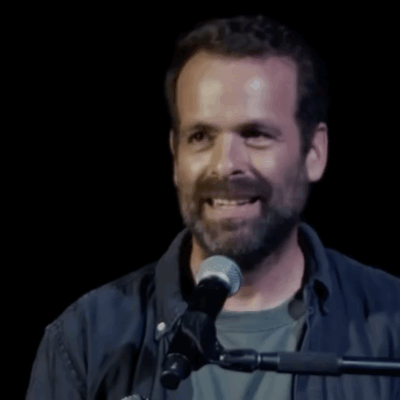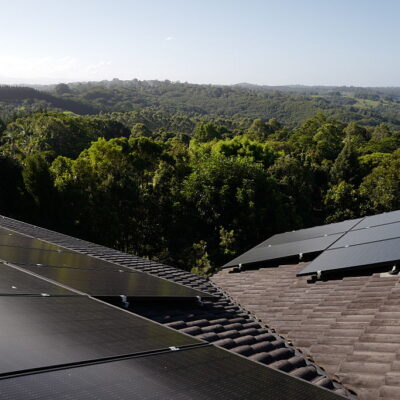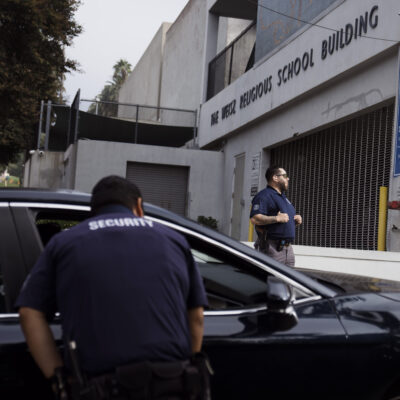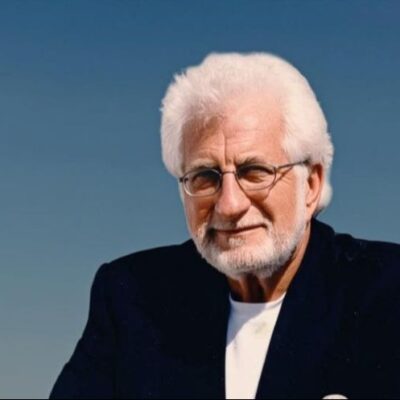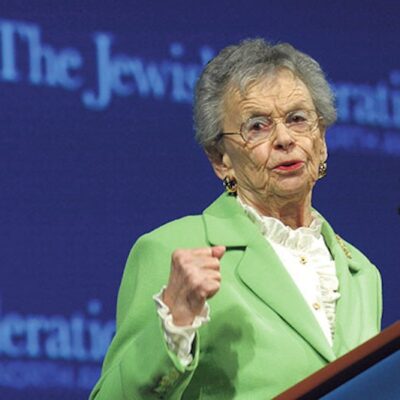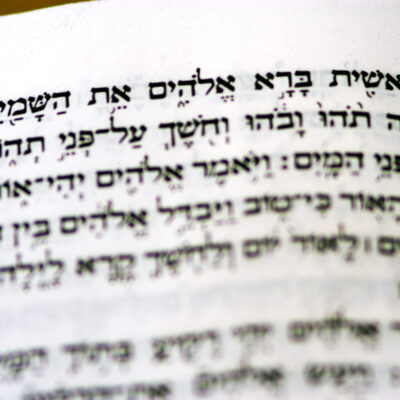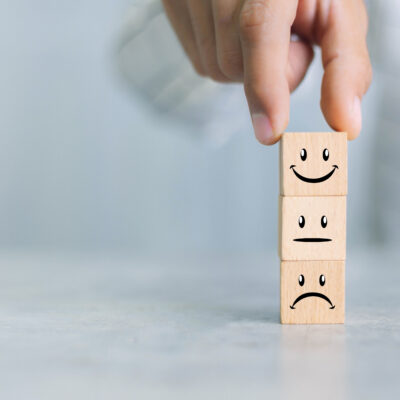LESSONS FROM DOWN UNDER
Australian ‘It’s Time’ initiative encourages Jewish households to ‘electrify’ and make greener choices
Jewish Climate Network organizes home information sessions to get Jewish families to opt for electric appliances, solar panels
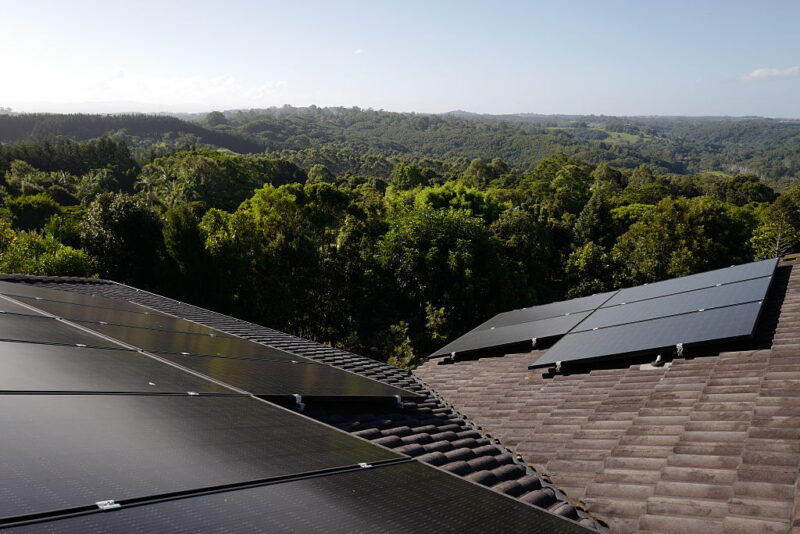
GETTY IMAGES
Illustrative. Solar panels attached on the top of a roof of a home in Byron Bay, Australia, on April 6, 2025.
In Judaism, the house is a holy place. It’s where traditions and mitzvot are practiced and passed down.
When it comes to the environment, the household is also a major driver of climate change. While there is a global push to shift from dependence on coal, oil and gas for power to renewable energy such as wind and solar power, if the heating systems, water pumps and appliances throughout houses run on fossil fuels, they will continue to drive global warming, Joel Lazar, CEO of Australia-based Jewish Climate Network, told eJewishPhilanthropy.
That’s why, in May, JCN launched “It’s Time,” a campaign aiming to get 100 Jewish households in Melbourne and Sydney to replace their gas appliances with electric alternatives, with the hope that they will be an example to other cultural and religious communities in Australia as well as to Jews around the world.
Step one of reducing household greenhouse gas emissions is “electrifying” appliances because even if a house is decked out in solar panels it won’t help if everything runs on gas, explained Lazar. Step two is adding renewable energy to houses with solar panels. Step three, reap the benefits financially, which people normally see after three years.
Contemplating global warming can be overwhelming, Lazar said, but Jews don’t have the option of giving up. From a Jewish perspective, small actions matter, he said: For example, there are 613 commandments, and “every single mitzvah in Judaism gives you ‘mitzvah points.’”
Founded in 2019, JCN originally focused on educating Jews about climate issues. Today, most Jews understand global warming is an issue, Lazar said, so the organization has shifted to what to do about it.
Through “It’s Time,” JCN offers workshops, similar to Tupperware, Pampered Chef or LuLaRoe parties, where households invite 10 to 15 friends to which JCN staff presents. Presentations are purposefully kept simple so attendees aren’t overwhelmed with options and information.
“The electrification process can be a very kind of nerdy, detail-oriented process,” Lazar said. “You don’t have to tell people everything right up front. Just tell them the essential things that they need to make good decisions for their life. If they need more information, then you can follow up afterwards.”
One barrier stopping people from becoming more environmentally conscious is that they don’t know whom to trust to provide services, he said. JCN addresses this issue by guiding them to a single partner: local electrical organization Goodbye Gas. “Engineers are this secret potion of the environmental movement,” Lazar said.
Because it takes time to see the savings, JCN helps participants discover loans and rebates, but the nonprofit acknowledges that the up-front costs involved can be a barrier for many people. “If you went from a fully gas home, no solar at all, and did everything at once, including an electric vehicle, that’s $100,000. Very few people are going to do that,” Lazar said. Going electric is “like buying anything in your home. It’s a choice that you make. If you can do it, you should. There are people who don’t have the money. They shouldn’t feel guilty about that.”
Seven Jewish households are already working to electrify their homes because of JCN’s efforts. Participants are motivated to go electric for different reasons. Some want to save money, while others are concerned about their families inhaling dangerous fumes from gas appliances. “I don’t really mind what motivates people as long as it gets done,” Lazar said.
For people who can’t afford to swap out a single appliance, the JCN website offers free ways they can combat climate change through investments and advocacy. “You can’t promote something that’s so out of reach for lots of people, it’s too expensive,” he said.
Lazar thinks Jews have unique strengths to contribute to climate change mitigation efforts. For instance, according to the Claims Conference, Australia has the largest concentration of Holocaust survivors per capita outside of Israel. “People think the climate challenge is impossible to overcome. You could easily say the same about someone who came out of the Holocaust. How could you rebuild a life after that?” he said.
“When you think about incredible Holocaust survivor stories in Australia, where they came with nothing, their family was totally wiped out and they built these incredible businesses and institutions, that tenacity is essential to the climate challenge.”
The environmental movement in Australia is “not particularly conscious of the nuances of all the subcultures of the countries that they operate in,” he also observed. He hopes “It’s Time” can provide an example to others in the environmental movement on how to rally communities using cultural sensitivity.
The project also provides the world with a powerful example of Jews pushing for change, which is needed at a time when antisemitism is spiking, Lazar added. He hopes the initiative will inspire other Jewish communities around the world to run similar programs.

